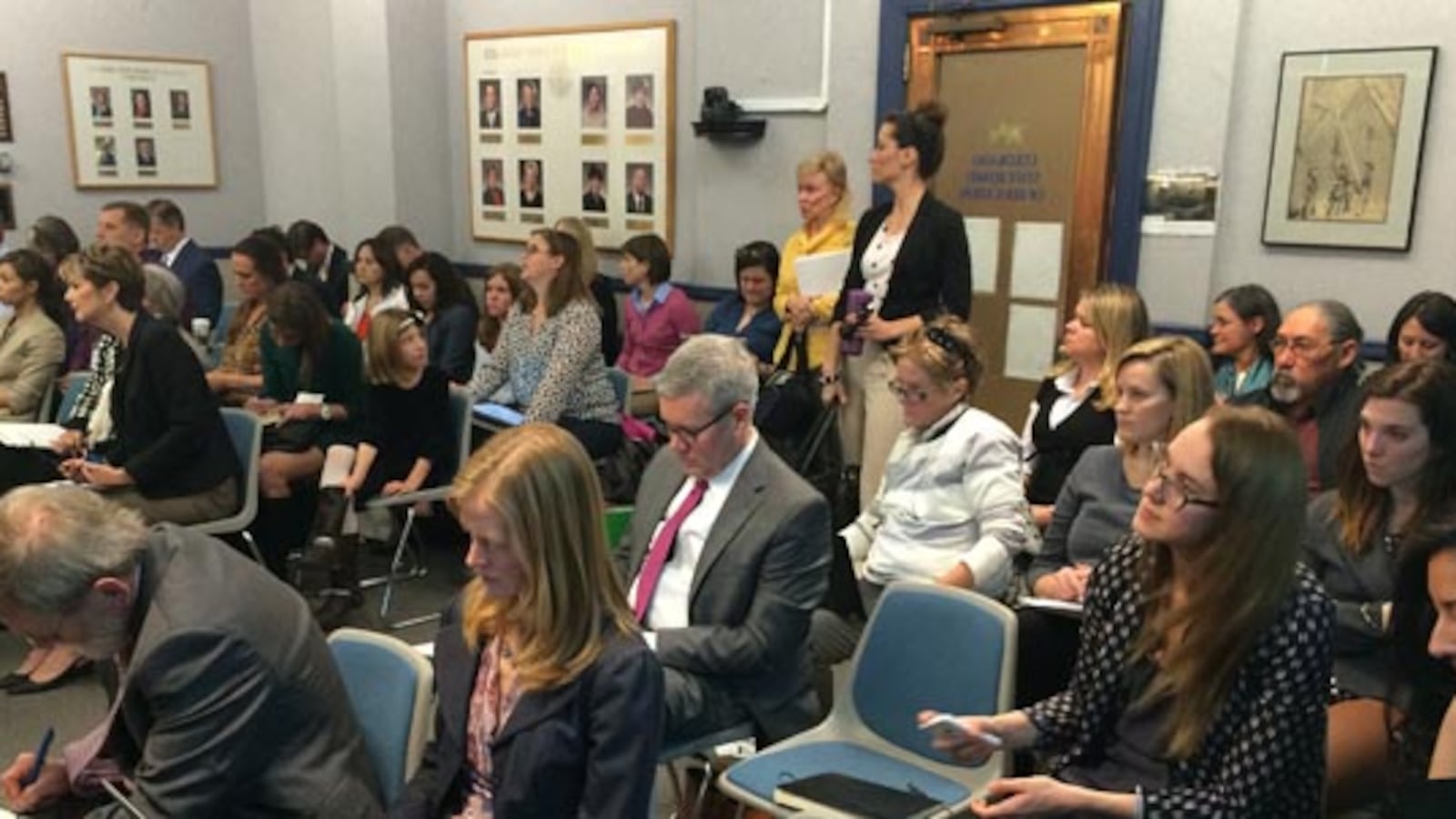Some State Board of Education members say parents need clearer, understandable information about student data collected during testing to dispel public fears about privacy and security.
“There has to be a reason for the public angst” about testing and data security,” board member Debra Scheffel said during a two-hour hearing focused on the student data collected during state testing. “Is this a public relations issue merely or are there real issues?”
Executives of the Pearson testing company tried to reassure the board about they handle student data.
“We do not share student information used in our assessment programs unless requested or authorized by the state,” said Walter Sherwood, president of Pearson State Assessment Services. “We do not sell any state assessment information to anyone.”
The comments came during a hearing Thursday morning at which the Department of Education and Pearson executives answered questions about the use of student data they collect. The questions were compiled from those posted by the public on CDE’s website over the last few weeks and from questions submitted on cards before the meeting.
Pearson, a mutinational testing company, is the contractor who administers both the PAARC language arts and math tests and the Colorado-only science and social studies tests given to Colorado students.
There are concerns among some parent groups about alleged collection of inappropriate or unnecessary student information and about what organizations have access to that data.
Here are the highlights of what Pearson and CDE had to say:
What data is required – “Every piece of data we collect we are required to collect under state and federal requirements.” – Joyce Zurkowski, state testing director
“Secret” tracking of students – “We do no keyboard monitoring nor are cameras on the devices [laptops and computers] during testing.” – Randy Schuessler, Pearson vice president of assessment technology solutions
Security – “We have state of the art technologies” for data encryption, monitoring of security breaches and other issues. Those include employee background checks, multiple layers of security and compliance with an alphabet soup of industry data security standards. – Schuessler
What’s not collected – Government identification numbers; addresses; online addresses, academic records or grades; disciplinary, criminal or health records or non-academic personal information. “We don’t do anything to collect personal biographical data on students.” – Schuessler
Data mining – “We do not do any data mining on student data.” – Schuessler
Collection of data on students’ “emotions” – Some testing critics allege that the tests somehow can gather information on students’ emotional states through such data as how long they take to answer questions. “We do not collect any such data.” – Schuessler
But the discussion didn’t totally reassure some board members.
“I don’t think all of these complaints have been created out of whole cloth,” said board member Steve Durham, a Republican from Colorado Springs.
Durham also was skeptical about whether Pearson needs much student information at all. “So can we just get this data collection back to name rank and service number?” he asked. “Your job is to grade papers,” he told the Pearson executives.
Scheffel also was worried about sharing of test data with the U.S. Department of Education. She implied that the state has no control over what the federal government does with the information, including giving it to other entities.
Zurkowski responded, “we will not be handing off individual student data to the federal government.”
Scheffel said, CDE “shares data, and that data can be sold.”
There also was a question about allegations that students are being asked about family religious affiliation and gun ownership.
“There is not a question that asks about religious affiliation, gun use of anything like that,” Zurkowski said.
Education Commissioner Robert Hammond said, “We’ve tried everything we can to run that down” but haven’t been able to verify the rumor.
Pearson executives didn’t have direct answer to Scheffel’s question about how parent worries can be eased, other than saying it’s difficult to translate complicated contract terms into easily understandable language.
“I hope we can really distill this information,” Scheffel said.
Democratic board member Angelika Schoeder of Boulder agreed, noting that parents are worried by “this eerie Big Brother feeling you get,” akin to when one does shopping online and then gets followed by customized ads.


